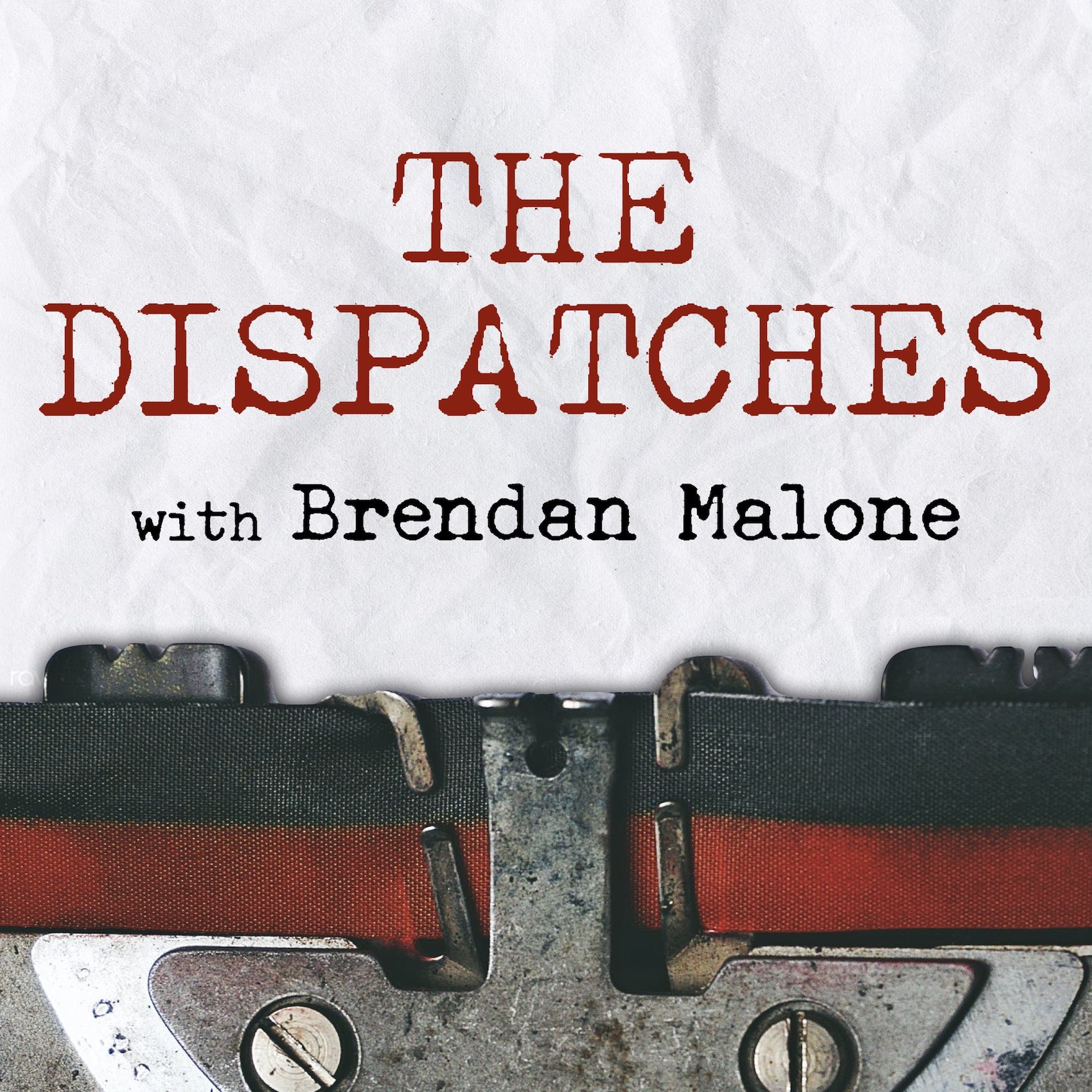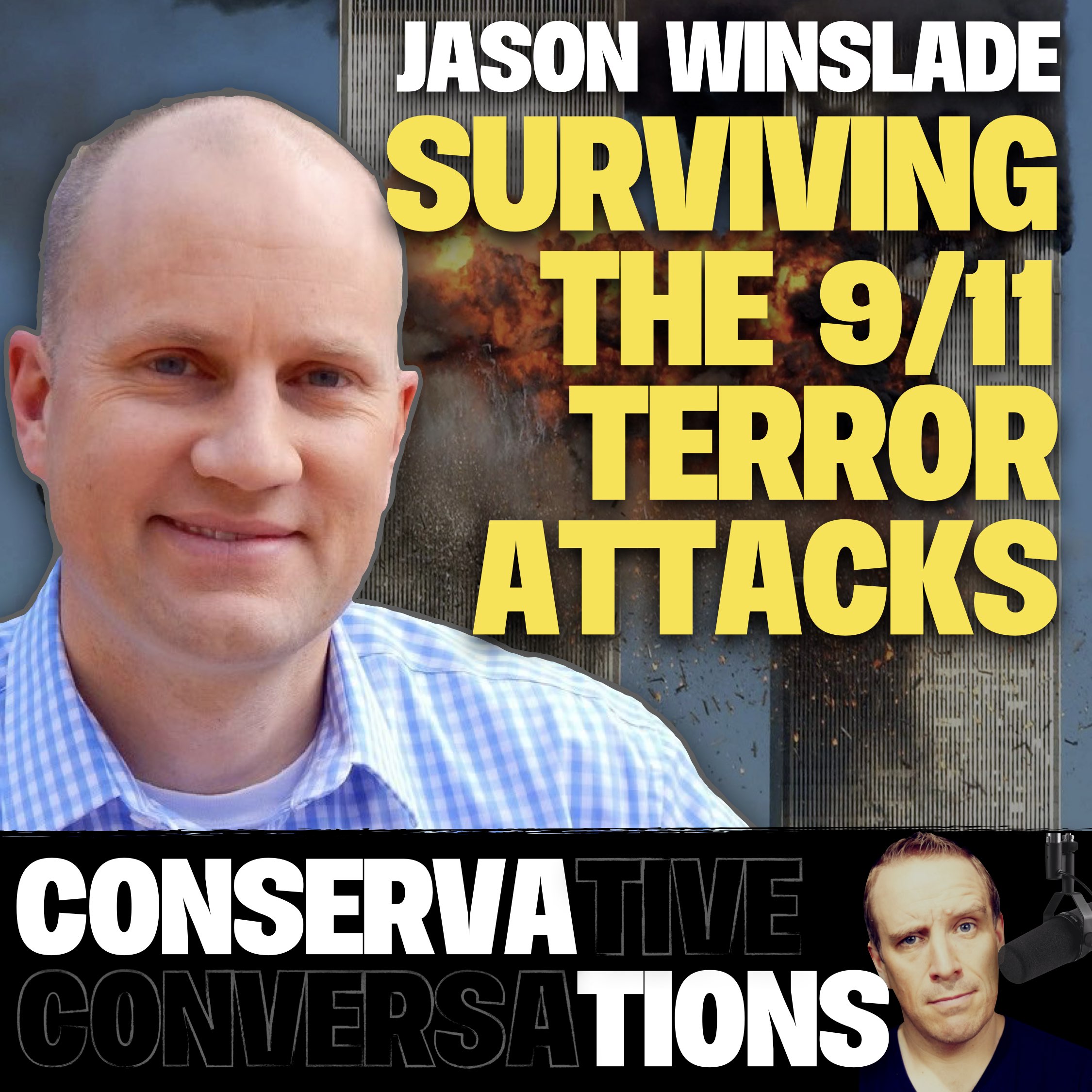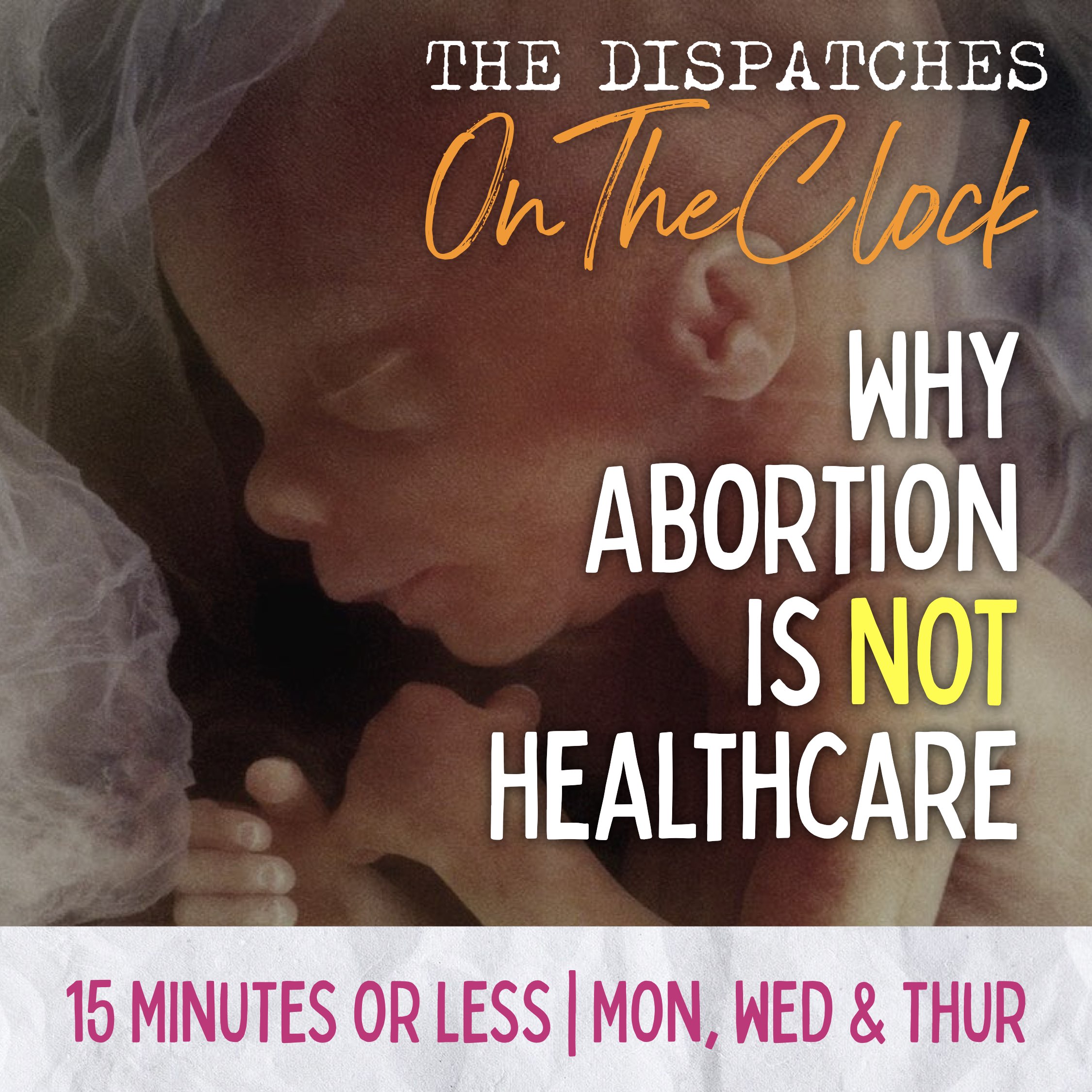[00:00:00] Speaker A: You.
[00:00:04] Speaker B: Welcome to this special preview of the latest Patrons only episode of the Dispatchers podcast. If you like what you hear and you want to listen to the rest of this episode, just head on over to Patreon.com left foot media and become a patron with $5 or more per month. The link is found in the show notes below. In the meantime, please enjoy this preview.
[00:00:25] Speaker A: Hi Everybody, my name is Brendan Malone. Welcome along to the Wednesday edition of the Patrons only episode of the Dispatchers podcast. It is great to be back with you again. The topic of conversation today is the despotism of classical liberalism. But before we get to that, I've got another really great article, an essay that was sent to me a couple of days ago that I thought was well worth reading in full here in this episode as well, about the Covenant school massacre. You remember that shooting that happened a couple of months ago, March the 27th, when that young trans identifying lady, so former student at the school, identified herself as a man, it was actually a woman, and she went on that shooting spree and killed students some very young at that Covenant school, the Christian School.
Interestingly, it's what was very noticeable to me how muted the response was to that.
There's a lot of talk about supposed antitrans violence, but very, very muted conversations happen in the public square about trans violence. So trans extremists who carry out the sort of violence. And as we've mentioned on the podcast on previous episodes, there are now several trans identifying shooting perpetrators, like mass shooting perpetrators in the United States now. So clearly there's an issue here worthy of conversation, but we're not really having the conversation. This op ed, this essay that was written, I think it's notable for several reasons, very beautiful. And the author has direct and intimate connection with these events, as we'll find out. So let's read from this article titled Shooting Adam A Christian Perspective on the Covenant School Massacre. On the morning of March 27, a transgender man named Audrey Hale shot her way into the Christian elementary school that employs my wife and educates my children. So that's his connection. His wife and his children are part of that school. The rampage that followed left seven dead, including the shooter, and has been duly chronicled, interpreted, and mourned both here in Nashville and across the nation. Despite the fact that no one in my family was physically harmed, or perhaps because of it, I decided at first not to write about the massacre. What changed my mind was an unreported detail confirmed privately by both the police and a church deacon in charge of the physical plant. At some point during her spree, Hale went from the school to the attached neo Gothic cathedral and fired seven bullets into a stained glass figure of Adam, the first man. According to the Genesis narrative. A writer may try for a while to resist such a symbol, but as the existence of this article proves, he is unlikely to prevail in the end. And I don't know about you, but I never knew that. And that is an interesting detail. Very, very, I think, interesting detail, and it really speaks to the nature of, I guess you'd say, the psychological state. It's a very, very powerful symbolic thing to do, to go and target Adam, an artistic depiction of Adam and shoot that on the part of someone who was confused about their human identity. Of course, I knew nothing about Hale or her motives. On the Monday morning in question, sitting in my office working on God knows what, I received an email from my wife alerting me that an active shooter was in her building, as anyone would do under such circumstances. I rushed to my car and began driving in the direction of the Covenant school. Reports of an active aggressor were already trickling onto local radio broadcasts, and I learned from one of them that police were setting up a reunification center at a nearby Baptist church. Arriving there, I found a sanctuary already beginning to fill with distraught parents, grandparents, police officers, and clergy. For at least an hour after my wife's email, I did not know whether my family were alive or dead. I don't carry a cell phone, but was eventually able to borrow my pastor's one for 2 hours. After that, I could not see my wife and children with my own eyes. So agonizingly slow was the police directed reunification process. During that mind focusing span, I acquired a series of insights that had previously been merely secondhand or theoretical. I learned that the ideology of psychotherapy has become so culturally Ingrained that assembled parents were urged to, quote unquote, process the day's events, even as those events remained ongoing. In an irony worthy of Volteer, the city employed councilors stalking the Isles wore rainbow flag lanyards.
Yeah, what do you say about that, eh? I learned that the same police force that had run toward gunfire only minutes earlier were utterly baffled by the problem of matching parents to surviving children. Most important, I learned that my decades long profession of faith had not been mere words. The believing reader will have a sense of what I mean. In that midnight hour, I had prayed as never before prayed without ceasing for my wife and children. Yet I knew with perfect certainty that if dead, my family were with their savior with countless Christians down through the ages, I would repeat the words of Job, the Lord gave, and the Lord hath taken away. Blessed be the name of the Lord. And by the way, I have an interesting story about that very passage of Scripture. A very good friend of our family, they lost their son and daughter in law, along with another member of their prayer group in an accident. I was about 16 when this happened, and interestingly enough, I was actually supposed to be in that vehicle with them. And we'll just call this a moment of divine Providence that I actually changed my mind and kind of last minute decided I wouldn't go with them on that trip. It was a short overnight trip, and on the way back home, the car accident happened.
But they lost their son and they lost their daughter in law and another member of this prayer group that we were all part of together. And I remember the Father talking about that passage subsequent to that profound loss, that moment of sadness and grief. And he talked about regularly. That was something that he would often just pray out loud. That was all he could say. And the hard bit, it's not stating the obvious. The Lord giveth and the Lord taketh away. The hard bit is then turning around immediately and saying, and blessed be the name of the Lord. So regardless of what happens, it's a very, very powerful orientation towards hope that the Christian faith offers in the midst of suffering. It's not easy, very hard, but I think very, very important. In the days that followed, it would be tempting to exchange this piece for the grim solace of politics. Hadn't Hale, a former Covenant school student, albeit nearly two decades earlier, chosen her victims for ideological reasons? Would her manifesto, unreleased as of this writing, but darkly alluded to by police, make plain her desire to kill Christians because of their faith? And by the way, as of this podcast, the recording of this podcast on Monday, the 22 May, that manifesto has still not been released in the United States, and a lot of people now are starting to say, what's going on? Why are you not releasing the manifesto? You do this with all sorts of other shooters. You release their manifestos very quickly. Why has this one still not been released? And I suspect it's because of the content and the fact that it doesn't actually paint trans activism in a particularly positive light. Pursuing these questions, I felt and feel attention that is not just nearly, but literally biblical in its resonances, turn the other cheek. But if any, provide not for his own. He hath denied the faith and is worse than an infidel. These directives are not irreconcilable indeed, a Christian in the public square must reconcile them daily, as must any Christian who advocates protests or votes. As an individual, I understood. I was called to forgive and could do so easily enough. Hale was, after all, mentally ill, no matter the fashion of the moment. Yet it was also newly evident that Christianity now stands opposed to a militant, virulent dogma that Brooks no dissent and has in its sights a final victory over nature itself. It is obviously not the case that transgenderism shot up the covenant school, nor are transgender people collectively responsible for Hale's crimes. Nevertheless, the transgender creed, rightly understood, is not just un but anti Christian. Having watched the American Church abandon the field on marriage, I saw anew that transgenderism would and must be different. It is not enough to say that transgender ideology and Christianity diverge in their attitudes toward the human person. Rather, the two belief systems are so radically incompatible that to embrace one is necessarily to deny the other. Embedded in the Genesis narrative is the idea that sex and gender are essential components of God's planned creation. We are not our own and cannot, in the words of the theologian Owen Strachen, make ourselves whatever we would wish to be. In transgender doctrine, humans achieve ultimate fulfillment by bringing their bodies into alignment with subjective intuitions. Christianity, meanwhile, demands subjugation of the human will to Christ, though perhaps it is better to say that Christianity promises or grants as much. In fact, we see this so very, very clearly in the words of Christ when he teaches Christians how to pray, and he gives us the words that we now refer to as the you know your will be done on earth as it is in you know we are called to conform our wills. Writing this essay, I have tried to put myself in Hale's shoes. Standing before the creation window, rifle in hand in the figure of Adam, she must have seen not only a masculinity she could never truly achieve, but a vast and unshakable edifice, terrible in its power. Had she lived, she might have come to know its grace. Instead, she chose rebellion, envy, wrath. In clinging to one God, she explicitly scorned another. Where the matter stands now is as clear as it has ever been, though to acknowledge as much and act properly requires a discernment for which the Church has not of late been famous. To seek vengeance, to hate our enemies is a grievous sin. But Christians can never again be silent about what is fast becoming a fundamental moral question of our time, second only to abortion and its cultural and spiritual ramifications. Some readers will reject that comparison out of hand. I urge them to reconsider. Like abortion, transgenderism asks us to contemplate what may be done by adults to children, as abortion does. Transgenderism attempts to remove bodily autonomy from an ethical plane and relocate it in the realm of pure desire. I grant, of course, that abortion does this with far severer consequences. Most significant, both issues oblige us to say, who shall define reality? Is a fetus a living human being? As science, common sense, and the evidence of our eyes and ears attest? Can a woman become a man in their deepest essence? The two questions are the same. Shall truth reign, or will a lie?
[00:13:30] Speaker B: Thanks for listening to this preview of our patrons only podcast to unlock the full version of this episode. Plus, get access to over 12 hours of new and exclusive patrons only content every single month. Simply become a five dollar monthly
[email protected].
LeftfootMedia the link is found in the show notes below. Don't forget, live by goodness, truth and.
[00:13:54] Speaker A: Beauty, not by lies.
[00:13:55] Speaker B: And I'll see you next time on the dispatchers.


